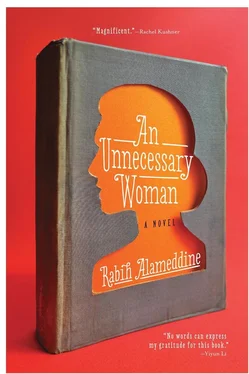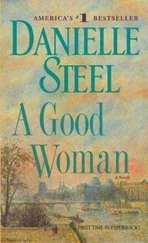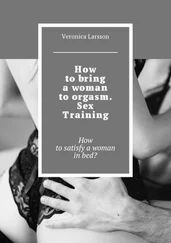In tentative steps with tiny feet I did separate, slowly and hesitantly, but I did.
A chestnut-haired boy, plump and pale, with eyes the color of newly pressed olive oil, sat forlorn, all alone on a bench, longingly watching gaggles of dizzyingly loud children rush about on bicycles, tricycles, and those topless, floorless miniature red cars. The lonely boy looked a few years younger than I. Rolled up in his hand was the comic book that lies on my desk right now.
I envied him. I wanted that comic book more than I’d ever wanted anything.
I asked him if he wanted to play. I used the word play, I remember that, giving him the option of choosing what game he wanted. He lit up, flushed as if he’d drunk a glass of Bordeaux. He did want to play, most certainly he did. He nodded and nodded and nodded. I asked if he was willing to share his comic book. He didn’t mind at all, he let me hold it. My dress had no pockets because it came with a purse that didn’t open. I gave it to him, my purse. A fair trade, no? He laid it on the bench and neither one of us noticed or cared when it disappeared. We played tag. My half brothers joined us, and others did as well. He had a good time. He left us grasping his mother’s hand and waving wild good-byes, a wide smile turning his double chin into a triple. I remember his jolly face, his joy, and his lovely smile to this day. There must be a reason that this survives so clearly in my imagination.
I went home with my comic book, my mother giving me a tongue-lashing for losing the plastic handbag.
How would I ever grow up to be a proper lady?
There’s another relic on the desk, though not as ancient, a souvenir from the war years in Beirut: a copy of Calvino’s Invisible Cities, scorched in the lower right corner, but just the back cover and the preceding twenty-two pages. The front isn’t damaged. I was reading the book by candlelight while people killed each other outside my window. While my city burned, I had an incendiary mishap, something that seems to have happened regularly to Joseph Conrad — the incendiary mishaps, not the burning cities.
The burning city, what a time. I have to mention here that just because I slept with an AK-47 in place of a husband during the war does not make me insane. Owning an assault rifle was not an indicator of craziness. You had to consider the situation. In the early days of the civil war, I used to descend to the garage beneath the building next door when the shelling began; our building didn’t have one, being a decade older. I hated those nights. Residents of the neighborhood, anxious and sleep deprived, sat around the rodent-resplendent garage in inappropriate dress: nightgowns, boxer shorts and undershirts, holey socks. I spent many a night there in the beginning of the war, until one day in 1977, while I was underground, a group of Palestinians broke into the apartment, rummaged through my belongings, and one of them defecated on the floor of the maid’s bathroom. That was the first break-in.
You might think that the Palestinian chose not to use the toilet because I had no running water. He might have felt it was beneath him to use the bucket filled with blue water — I’d hung toilet cleanser inside it — to flush. Not so; it was not uncommon for men to do such things. Israelis left their shit in houses they broke into; Palestinians left their shit; the Lebanese, the Iranians, the Syrians; Christians, Jews, Muslims. For man, this urge, which had been deposited in his cells at Creation, would forever be bestially liberated during war. It said: I was here, like it or not . I am told that toddlers in China do not wear diapers; their pants have a vertical opening along the seat making it easier for them to crouch and excrete. All soldiers should wear pants with slits.
Someone shat in my home. I procured a Kalashnikov.
I waited for a lull. After the incident, I was unable to sleep for three days, and no longer descended into the bowels of the neighboring building when the shelling gained heft and weight. I would choose to die with my apartment rather than live without it. In the margins of morning, I crouched behind my window and observed teenage Thanatophiles with semiautomatics running cockroachy zigzags. Moonlight on hand-me-down rifle barrels. As nebulae of flares colored indigo skies, I saw stars blinking incredulously at the hubris below. Set on low, my kerosene lamp murmured all night, acting as white noise. I waited and waited, kept company by a ticking clock whose dials glowed a phosphorescent lime green in the dark. I sat by the window, household chores not done. On my bulky couch next to the bulkier television, I watched my city, my necropolis, broil and crumble.
On the morning of cease-fire number 53,274 (the earlier one lasted all of thirty seconds, the one before that probably even less — okay, okay, so I exaggerate, but there certainly were more than one hundred cease-fires by 1977, two years into the war), I changed out of my nightgown into a pink tracksuit and espadrilles. Across the street, the Dexedrined Thanatophiles were playing poker, with matchsticks as chips, on a green felt folding table with slender legs, in front of Mr. Azari’s grocery store, the true litmus test of whether a cease-fire would hold — the store, not the card game, for Mr. Azari was intimately connected to various militia leaders. The store was the war’s weather vane. If its poison-green shutters were shut, no one ventured out of the house. If they were open, the neighborhood wasn’t in imminent danger. By my count, there were five bullet holes scattered across the metal shutters. Mr. Azari waved at me, obviously wanting to talk, but I only nodded in his direction and rushed past. I berated myself for not being friendlier, for not trying harder to make him like me, since he hoarded food and water from his meager stock and offered it to his preferred customers. I reasoned that I would never be one. His favorites offered him home-cooked meals, and I was a mediocre cook. I was lucky, though; Fortune watched over me. Fadia was by far the best cook in the neighborhood, and fed him constantly. Since the war began, he had gained fifteen kilos. I may not have been Fadia’s favorite person, but I was her neighbor and tenant (she’d inherited the building after her parents’ deaths). A few mornings a week, I’d wake to find on my doorstep a couple of bottles of water, maybe a sack of rice, sometimes a bag of fresh tomatoes or a few oranges. After nights when the clashes were fiercer than usual, she’d leave a dish of the same meal she offered Mr. Azari. With the first bite, I would turn devout and pray for her welcome into Paradise or God’s bosom or any beauty spa she chose.
Instead of going to open the bookstore, I took a bedraggled jitney to Sabra. No Lebanese car would drive into the Palestinian camp’s labyrinth once the civil war erupted, so I got out at the entrance. I had the need of Theseus and the knowledge of Ariadne, no ball of yarn for me, so I sought the Minotaur, not to kill him, but to ask for his help. I sought Ahmad.
Ahmad’s mother lived in a shack, or, to be more precise, a jerry-built structure consisting of a concrete wall onto which three sidings of asbestos and corrugated iron were jammed, with a tin roof on top. Its door, also of shingles, was not hinged; you simply removed it to walk in or out and replaced it when through. No lock needed since neighbors were atop one another; if anything went missing, all knew which neighbor had borrowed what. I’d been there once before, years earlier, at which time six people lived within the structure. I only had to deliver a book, a present for Ahmad’s seventeenth birthday, and didn’t enter even though his mother, kind and gentle at the time, kept insisting that I honor her with my presence in her household.
Читать дальше












